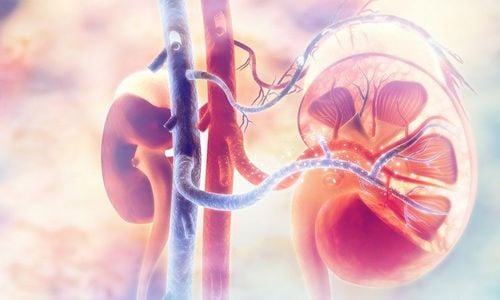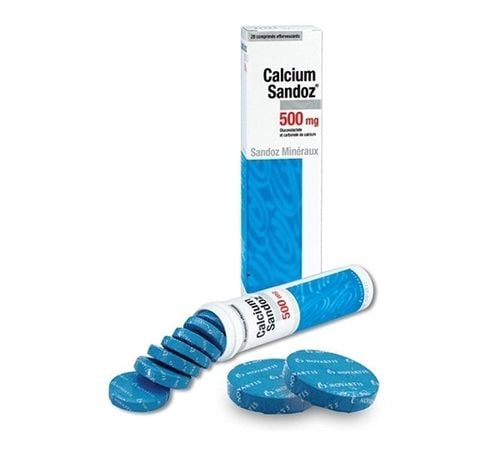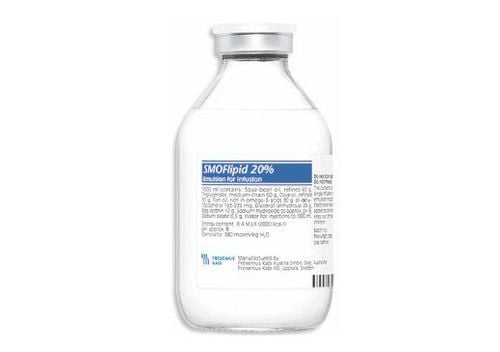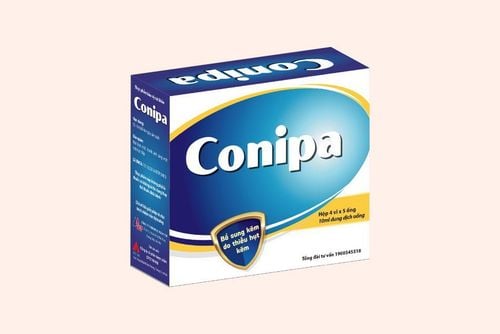This is an automatically translated article.
Neoamiyu drug belongs to the group of parenteral nutrition products, often used to supplement nutrition when it is not possible or not provided enough by mouth and needs to be fed by parenteral route. So how does Neoamiyu drug work?
1. What are the effects of Neoamiyu?
Using Neoamiyu as essential amino acid therapy for patients with renal failure is administered via peripheral intravenous infusion on dialysis patients and patients with chronic renal failure in the conservative stage. This therapy is also used to provide total parenteral nutrition to patients with acute renal failure. The study noted an improvement in protein and amino acid metabolism as well as a reduction in symptoms caused by uremia as well as slowing down the deterioration of the body in people with renal failure.
Neoamiyu is a new preparation with the effect of essential amino acid preparations for kidney failure, has the effect of maintaining kidney function and reducing symptoms caused by uremia. Besides, this drug also adds amino acids in a more active way, safe and easy to use, with complete nutritional effect. This is a complete amino acid infusion solution for renal failure, rich in essential amino acids.
Neoamiyu drugs are usually indicated in cases where amino acids are needed for acute and chronic renal failure such as:
Lack of plasma proteins. Malnutrition . Before and/or after surgery. Contraindications of Neoamiyu drug include:
Hepatic coma or possibly hepatic coma (in patients with disturbances in amino acid balance, it may be precipitated or lead to hepatic coma). Hyperammonemia (nitrogen overload can aggravate hyperammonemia). Congenital abnormalities in amino acid metabolism (amino acids taken into the body are not metabolized, making symptoms worse).
2. Dosage of Neoamiyu thuốc
Depending on the subjects and treatment goals, the dose of Neoamiyu will be different, specifically as follows:
For chronic renal failure:
Adults: usually use a dose of 200 ml x 1 time / day, infusion Peripheral vein drips slowly at a baseline rate of 200 ml over 120-180 minutes (25-15 drops/min), possibly adjusting to a slower infusion rate in children, the elderly, or the critically ill. For patients on dialysis, the drug is infused into the venous side of the dialysate circulation, starting 90-60 minutes before completion of dialysis. Energy supply must be at least 1500 Kcal/day for amino acids to be used effectively in the body. For acute renal failure:
The usual dose for adults is 400 ml/day, intravenous drip. The dose may vary depending on the patient's age, symptoms and body weight. In order for amino acids to be used effectively in the body, at least 500 Kcal of non-protein energy must be provided for every 1.6g of nitrogen taken in (200 ml of Neoamiyu).
3. Neoamiyu drug side effects
In some patients when using Neoamiyu, side effects may occur such as:
Whole body itching, rash, urticaria. Nausea, vomiting, loss of appetite. Chest discomfort, palpitations. When using Neoamiyu high dose or rapid infusion can cause acidosis. Headache, runny nose. Increase metabolism. Increased creatinine, GOT, GPT. Drug-induced amino acid overload causes occasional increases in BUN. More rarely, fever, chills, a feeling of heat in the head or pain along the blood vessels.
4. Be careful when using Neoamiyu thuốc
Some general notes when using Neoamiyu drugs:
Neoamiyu should only be used when it is not possible or not to provide enough nutrition by mouth, it is necessary to feed by infusion. Taking an essential amino acid preparation for renal failure is the only known nitrogen source to cause hyperammonemia or impaired consciousness. Therefore, it is necessary to stop using Neoamiyu when there are abnormalities such as decreased self-control or slurred speech. Caution should be exercised when administering Neoamiyu to subjects such as patients with cardiac dysfunction (increased circulating flow burdens the heart and worsens symptoms), patients with liver damage or gastrointestinal bleeding, patients with severe electrolyte disturbance or acid-base imbalance. It is necessary to slow infusion or reduce the dose of Neoamiyu when used in the elderly because physiological functions have decreased in this subject. The safety of Neoamiyu for use in children has not been clinically established. Do not use Neoamiyu solution when the solution is not completely transparent. Patients with chronic renal failure hospitalized without dialysis need to reduce 5-10g of protein from the amount of protein in food per 200ml before using Neoamiyu. The safety of the drug during pregnancy has not been established, so its use in pregnant women requires that the benefits outweigh the risks. Above is all information about the uses, dosage and precautions when using Neoamiyu medicine. Note, this is a prescription drug, patients absolutely must not buy drugs to treat at home because they may encounter unwanted side effects.













